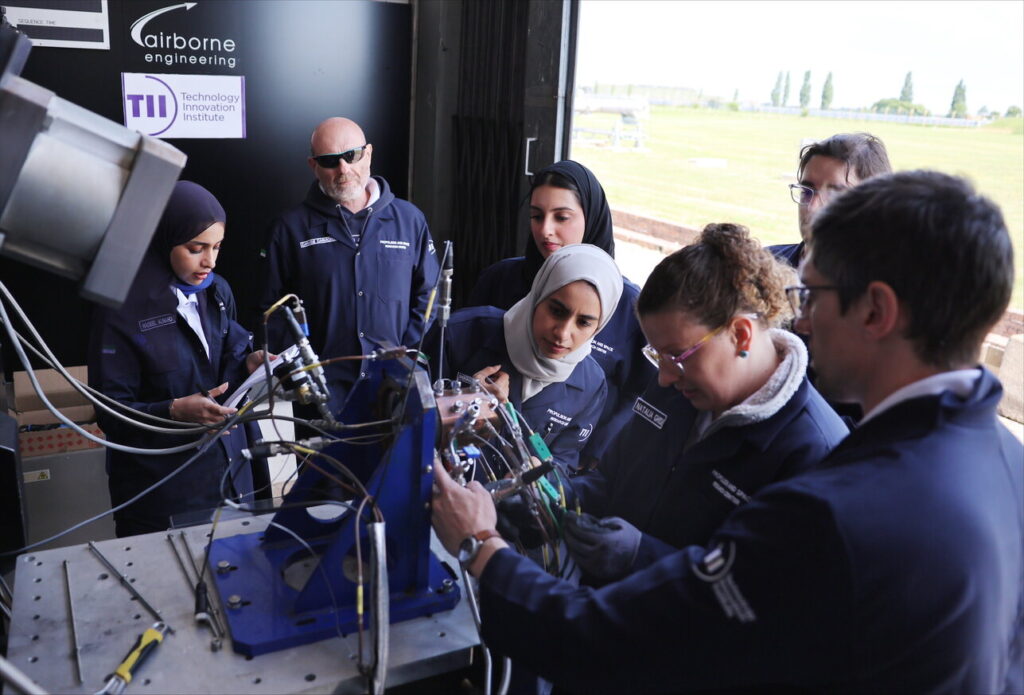Successful test programme marks a critical advance in UAE’s journey towards independent space capability
The Technology Innovation Institute (TII), the applied research division of Abu Dhabi’s Advanced Technology Research Council (ATRC), has achieved a historic breakthrough by designing, building, and successfully test-firing the UAE’s first liquid rocket engine. The milestone highlights the country’s growing commitment to developing sovereign space technologies.
Understanding liquid rocket engines – and their significance
Liquid rocket engines power most modern launch systems and are integral to reusable spacecraft, which are vital for maintaining consistent, sustainable access to space. With this achievement, the UAE has demonstrated its ability to develop propulsion systems that are crucial for orbital adjustments, station keeping, precise satellite positioning, and the pursuit of future lunar and Martian exploration missions.
About the UAE’s first liquid rocket engine
The newly engineered 250-newton liquid rocket thruster, capable of delivering the equivalent thrust to lift 25 kg on Earth, was conceived and produced entirely within the UAE. Engines of this type are commonly used to propel small satellites and perform orbital manoeuvres, making them a cornerstone of space mobility. Rigorous testing of the thruster delivered combustion efficiencies of up to 94%, with over 50 successful firings confirming the engine’s design, reliability, and consistent performance—benchmarks essential for future in-space operations.
Dr. Najwa Aaraj, CEO of TII, said: “This engine is more than a technical success – it represents the foundation of a capability that will enable the UAE to design, test, and ultimately deploy propulsion systems for a range of future missions. By developing this expertise here in Abu Dhabi, we are ensuring that sovereign space technology becomes a reality, and that our nation’s talent is at the center of shaping that future.”
Shaping the UAE’s space future
TII’s liquid rocket programme is headquartered in Abu Dhabi and integrates the expertise of Emirati engineers with international specialists, creating a robust knowledge ecosystem that will empower local talent and inspire future generations of space professionals. The programme aligns with TII’s mission to scale propulsion technologies, adopt regenerative cooling techniques, and enable reliable, independent space access to serve scientific, commercial, and exploratory ventures.
Dr. Elias Tsoutsanis, Chief Researcher at the Propulsion and Space Research Centre at TII, said: “Successfully firing the UAE’s first liquid rocket engine is a major step in building sovereign propulsion capability. This milestone reflects the dedication of our team and the progress of our in-space research. With local test infrastructure underway, our focus will be on scaling propulsion systems and advancing technologies that can support future orbital and deep space missions. It’s an exciting moment – and just the first step in a much larger journey.”
The first test-firing was conducted at Airborne Engineering’s facilities in the UK in collaboration with international partners. However, the next phase will focus on establishing dedicated testing infrastructure in the UAE, enabling future cold-flow and hot-fire tests to be performed domestically. Future plans include scaling up propulsion systems to larger engines, exploring cryogenic propellant solutions, and supporting missions to deep space, reinforcing Abu Dhabi’s ambition to play a significant role in the global space sector.

